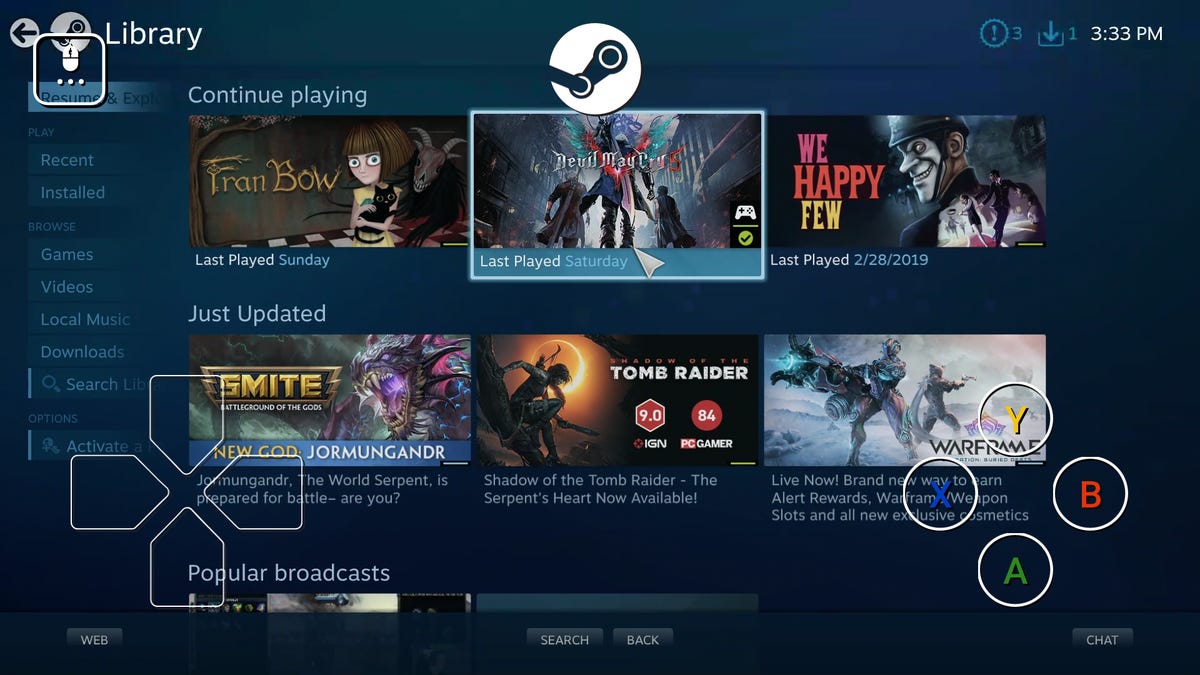Valve debuts Steam Link Anywhere, opens its multiplayer platform to devs
As we head into GDC 2019, Valve expands Steam Link with the ability to stream games from a desktop to phones and other devices on different networks.

Steam Link running on Android with the touch controls enabled rather than a paired controller.
Steam's continuing beta of its Steam Link app, which lets you play games on any supported device by streaming them off a computer, added a major new capability today: streaming to devices on any network rather than only on the same network as the host computer. It's all still in beta, but it fills an important hole that Steam needs in order to compete.
Cloud gaming and game streaming are going to be the talk of next week's Game Developer Conference (GDC), and companies are dropping hints and previews like mad to make sure they don't get left behind. Microsoft teased Project xCloud and announced that its Halo: Master Chief Collection is coming to Steam, and the countdown has started to Google's Project Stream update announcement. Plus, we're expecting news about Apple's all-you-can-eat game subscription service on March 25.
Less glamorous than cross-network gameplay, the boring-sounding news about the addition of new APIs to the Steamworks SDK is actually quite notable: The extensions give developers access to Steam's network backbone and packet management skills -- honed via its DOTA 2 and Counterstrike: Global Offensive experience -- for multiplayer games. This should (in theory) lighten the cost load for midsize and small developers, making it possible for them to host multiplayer games without having to worry about some of the big network pains, like latency, on a far-less-than AAA budget.
This comes at a time when Valve's under pressure for its controversial hands-off policy vis-a-vis games Steam carries (yet again), as well as dealing with publishers defecting to other platforms.

